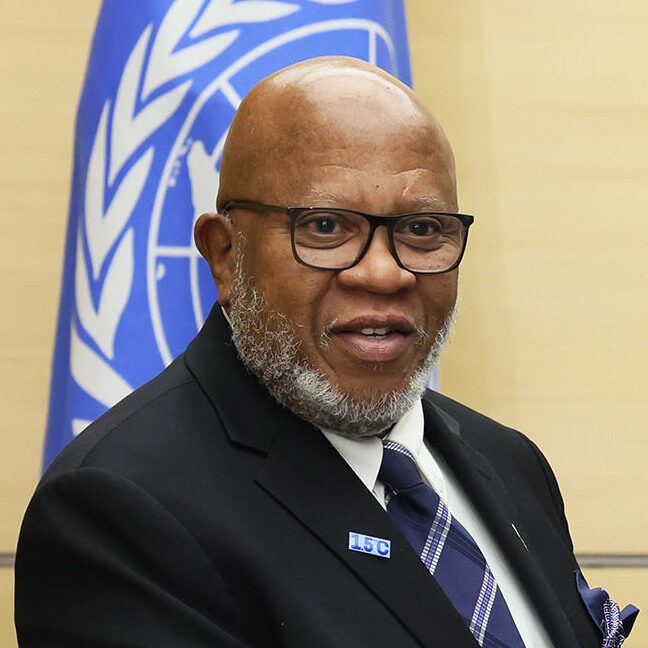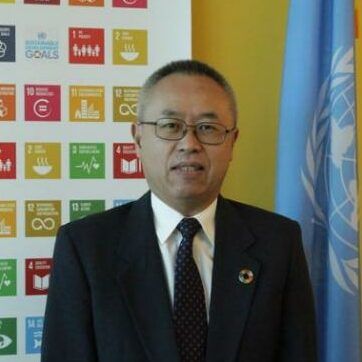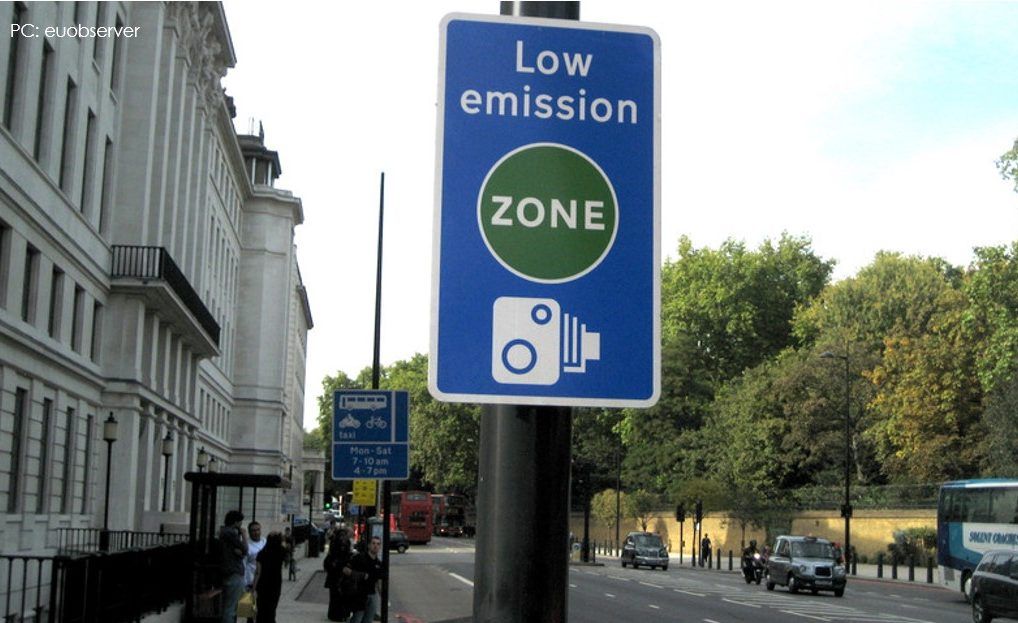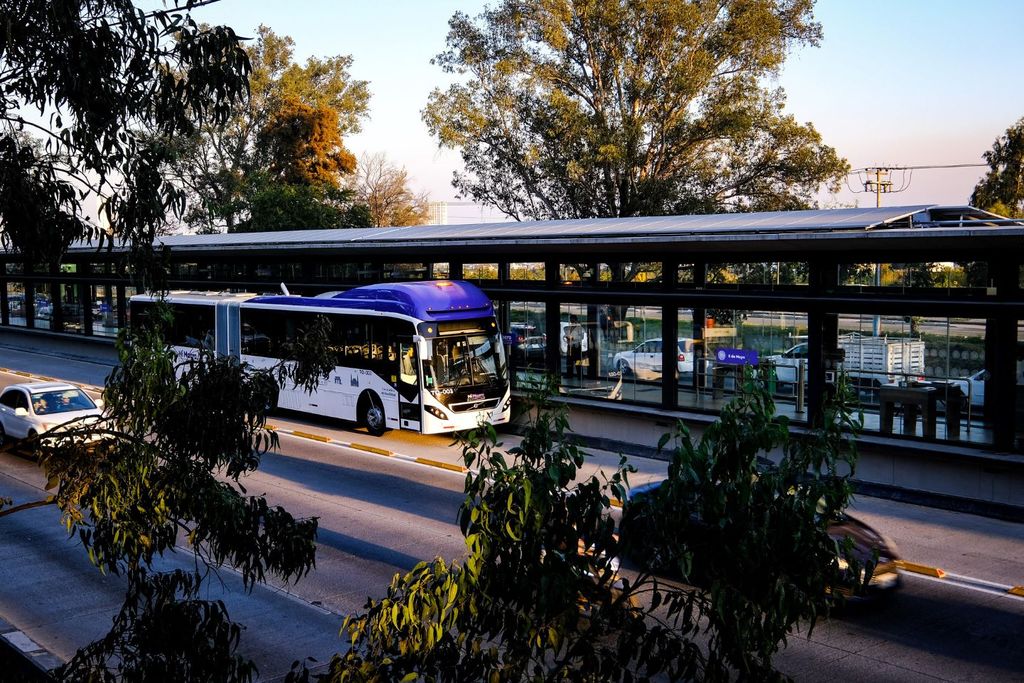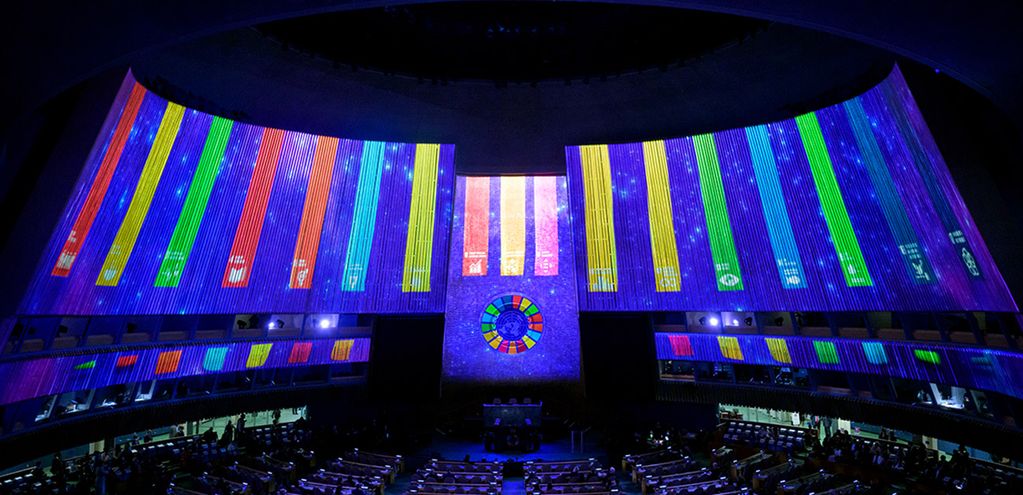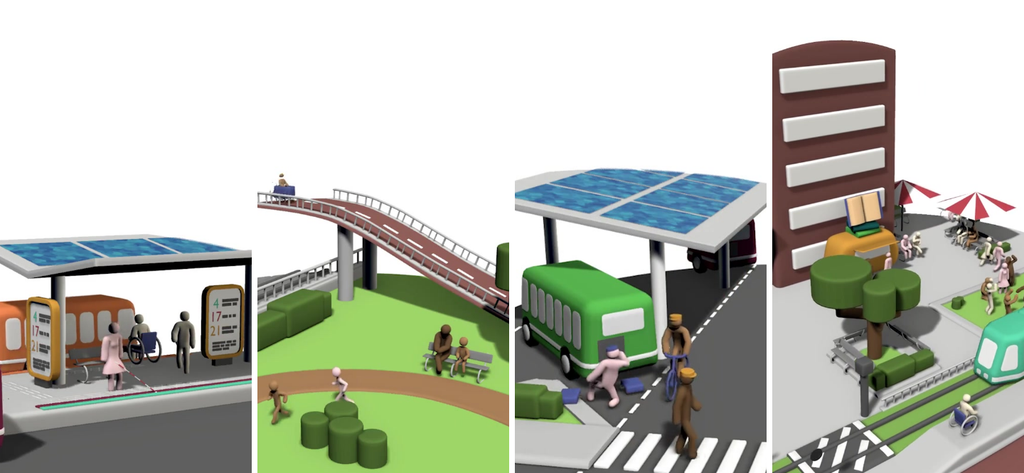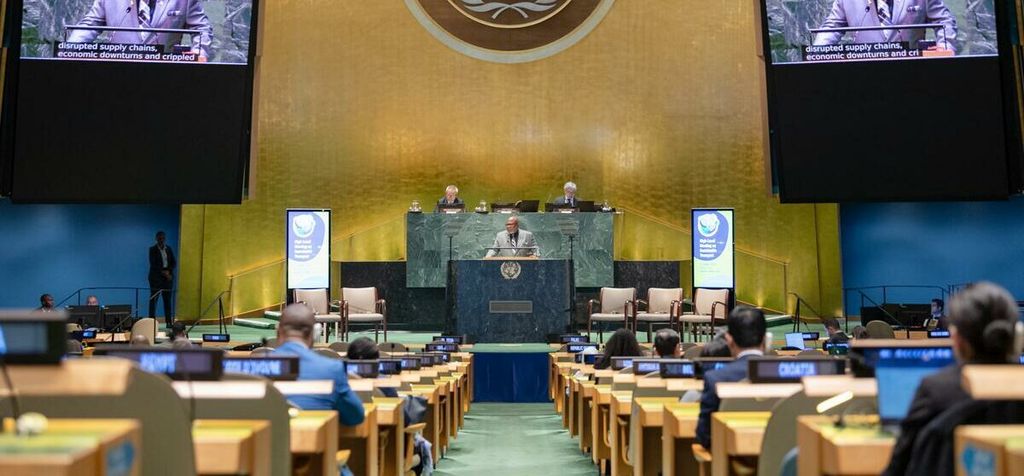
A rare chance for global action: UITP President speaks at United Nations General Assembly
UITP President Renée Amilcar shows crucial role of public transport on the global stage
UITP put public transport at the centre of the first ever United Nations General Assembly (UNGA) Sustainability Week at the UN Headquarters in New York from 15 to 19 April. UITP President Renée Amilcar took the stage to share how public transport is key to a sustainable future. “The right measures can put us on a path to a 2050 that we can all celebrate, a future where communities are connected by public transport.”
The President of the UNGA, H.E. Dennis Francis convened the Assembly and dedicated 17 April to sustainable transport. He opened the meeting saying that “we gather here today at what we hope will be the threshold of a monumental shift in acceleration towards sustainable development. The crucial significance of the transport sector in our global economy cannot be overstated.”
UITP was invited to contribute with solutions to improve the balance between economic, social, and environmental dimensions of sustainable transport. The outcome of the High Level Meeting serves as a contribution to the implementation plan for the United Nations Decade of Sustainable Transport.
Watch the full speech of UITP President Renée Amilcar here.
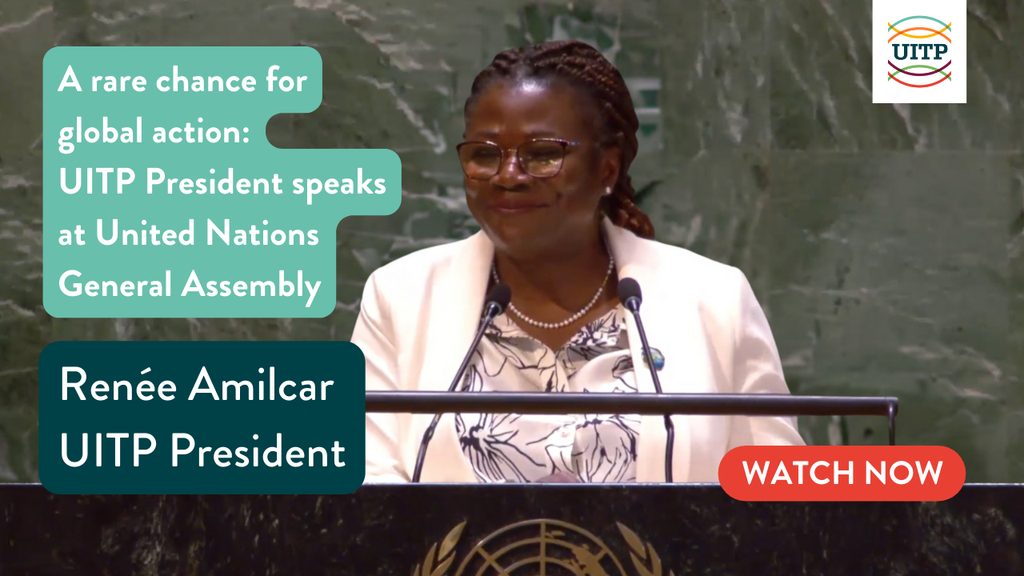
A unique solution
Starting her speech, Renée Amilcar said: “I am here to present a unique solution to the challenges posed by climate change, urban sprawl, congestion, and economic and social marginalisation: public transport. Public transport is the sustainable solution we need for people, progress, and our planet.”
Increasing the modal share of public transport is the most affordable way to reduce emissions. Doubling its use in cities could cut urban transport emissions in half by 2030. We need to transform our urban transportation networks by scaling up our policy measures and shifting finances towards public transport.
“Transportation is a lifeline, connecting communities and markets. The UN Decade of Sustainable Transport presents a unique opportunity to recalibrate our approach. We have a rare chance to galvanise global action towards efficient, safe and inclusive mobility with a reduced climate footprint. Today’s meeting serves as a crucial juncture to lay the groundwork for this transformative decade.”
In a December 2023 resolution the UNGA decided to proclaim 2026 to 2036 the United Nations Decade of Sustainable Transport. This presents an opportunity to strengthen synergies between the global climate and sustainability agendas. As part of these initiatives, a Global Day of Public Transport would serve as a reminder of the potential public transport offers for a sustainable future.
As countries begin updating their Nationally Determined Contributions (NDCs) by 2025, they should include ambitious mode shift goals and targets for public transport in their national plans. Currently a third of countries still overlook public transport in their climate plans.
“We cannot keep expanding urban roads to accommodate more private vehicles, whether they are zero-emission or not. In the absence of interventions, motorised mobility in cities could surge by 95% in the next 25 years.”
Posing the question ‘How will we achieve our public transport goals?’ Renée Amilcar said: “First and foremost, we need ambitious political leadership. We need leaders with the courage and determination to embrace a vision for the future that prioritises public transport.”
“We need to rethink our cities to prioritise efficient transport for residents and visitors, offering a diverse range of attractive public transport options. We need stable, long-term funding to offer a public transport service that people will choose to use willingly. We need effective governance and flexible regulations to discourage private car use.”
These measures will put us on a path to a 2050 that we can all celebrate, a future where communities are connected by public transport. “The United Nations can play a crucial role by providing strong leadership, enhancing its institutional capacity on sustainable transport, and fostering closer collaboration between state and non-state actors to improve international cooperation.”
“Sustainable transport is a lifeline for achieving sustainable development and making progress on climate action. Increasing efficiency, reducing fossil fuel use and investing in public transport must be at the top of our transport actions.”
Public transport contributes directly to 14 out of 17 of the United Nations’ Sustainable Development Goals (SDGs). This is showcased clearly in UITP’s latest report ‘Why public transport is key to achieve the SDGs’, which outlines 12 ways in which public transport contributes to specific targets within the SDGs.
For example, public transport benefits progress by boosting the economy. It connects people to jobs, training and leisure, supports tourism, increases land and property value, and helps regenerate poorer areas through public transport connections. This has a direct impact on SDG target 4.1 (poverty reduction and economic development across the globe).
All in all, the report identifies 37 instances where public transport brings a benefit that directly contributes to a target within the Sustainable Development Goals.

